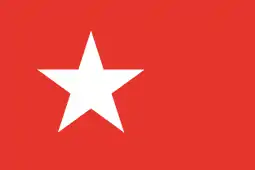Maastricht Science Programme | |
 Hustinx Mansion, home to MSP until August 2020 | |
| Type | Problem-Based Learning & Research-Based Learning |
|---|---|
| Established | 2010 |
| Dean | Gerco Onderwater |
Academic staff | Science and Engineering |
| Location | , , |
| Affiliations | Maastricht University |
| Website | www |
Maastricht Science Programme (abbreviated as MSP) is an English language liberal arts and sciences programme founded in 2010. The programme is part of Maastricht University (Dutch: Universiteit Maastricht) in Maastricht, Netherlands, and offers an honours programme.
History
The Maastricht Science Programme was founded in 2010 and received its first students in the 2011–12 academic year. The MSP is the second liberal arts and sciences programme in Maastricht, alongside its sister programme, University College Maastricht (UCM). Like UCM, the Maastricht Science Programme is part of the Faculty of Science and Engineering of Maastricht University.
Academics
Courses at the Maastricht Science Programme are taught fully in English. After graduating from the MSP, students obtain a Bachelor of Science degree (BSc).
Classes are small and structured using Problem-Based Learning (PBL). Students also participate in undergraduate research.
Curriculum structure
At the Maastricht Science Programme (MSP), students construct their curriculum by choosing courses in the fields of:[1]
- Astronomy
- Biology
- Biomedical Engineering
- Biomaterials
- Chemistry
- Entrepreneurship
- Mathematics
- Neuroscience
- Physics
Courses are structured in a 1000 to 3000-level structure,[2][3] indicating an increasing level of complexity and requiring previous knowledge. Per semester, students choose 4 courses (each 5 ECTS). In addition to courses, students are required to choose two skill trainings (each 2.5 ECTS). Finally, students are required to take one project (5 ECTS) per semester. A BSc[4][5] degree at the MSP comprises a total of 180 ECTS.
Students enrol in a maximum of 30 ECTS per semester or 60 ECTS per academic year. The final semester of the MSP consists of the Bachelor Thesis Research module (BTR), which is worth 30 ECTS.[6]
References
- ↑ Course Catalog. Maastricht University.
- ↑ "What is the difference between 1000, 2000 and 3000 level courses? / AskUON / The University of Newcastle, Australia". askuon.newcastle.edu.au. Retrieved 2022-11-02.
- ↑ "Course level Definition". Law Insider. Retrieved 2022-11-02.
- ↑ "Abbreviations". Marketing & Communication. Retrieved 2022-11-02.
- ↑ https://www.dictionary.com/browse/bachelor-s-degree"Bachelor of Science", Wikipedia, 2022-11-01, retrieved 2022-11-02
- ↑ "European Credit Transfer and Accumulation System", Wikipedia, 2022-10-03, retrieved 2022-11-02
